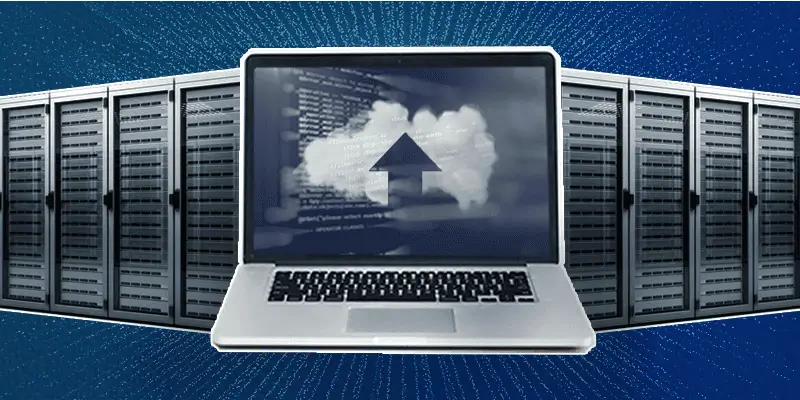We’ve discussed at length how important it is to protect your Salesforce data. Loss of access or corrupted data can have wide-ranging effects on daily operations and cost a considerable amount of money.
A reliable backup and recovery infrastructure is essential to guarding against the possibility of a data disaster. And like most types of security, a varied approach is the best way to cover your bases.
Salesforce data replication is one method of creating a useable backup of data that can be accessed should a system failure occur.
However, this isn’t the only use for this method of data security. Replicating your Salesforce data can be tailored to your exact specifications and fulfill a variety of needs.
The amount of data to be replicated can be scaled depending on your intended use for the data. Full Replicate address all of the metadata and data from a backup or archival source. Selective Replicate allows the user to select specific data and metadata.

There are three main sources from where you can pick the metadata and data for replication:
- Normal Backup
- Hierarchical Backup
- Archival Storage
Whatever specifications you choose, the benefits of a reliable replication of Salesforce data will remain the same.
Here are 8 benefits you can expect to see from utilizing data replication in Salesforce:
1. Up-To-Date Data Recovery
The most common reason for replicating Salesforce system data is so it can be used in the event of a data disaster.
Utilizing data recovery to maintain a current and reliable backup of system data allows a company to quickly replace damaged or lost data.
Up-to-date backups are incredibly beneficial and can save an operation a lot of money. Redundant work to replace damaged or lost data takes a lot of developer time, which directly translates into money spent. And any time a team spends addressing returning a system to operations is time taken away from progressing and achieving their goals.
2. Durable Transactional Processes
Transactional data is frequently updated and requires a unique level of connectivity. Information flows in multiple directions. This means that the data is housed in different places and needs to be continuously updated.
These updates need to be consistent as the transactions take place throughout the various touchpoints.
In order to address this, the applicable application is required to compose the commit before the actions can execute the task.
Data replication assists this process by eliminating the dependency on a singular source of information. Additional operations increase the durability of the whole process.

3. Reliable Access to System Data
Hardware failures are responsible for about 40% of data loss events. This could be due to a virus or even a natural disaster. A computer or server that gets destroyed loses all the data that is stored within it.
Replicating data means it is distributed between various places, computers, or even servers.
Any attack or malfunction on the part of a singular instance of that network won’t impact the general well-being of that important information.
Multiple access points to the data also increases the accessibility. It becomes much easier for team members to view and share data when it is not tied down to a singular location.
4. Strengthen Network Reads
Reading data across a vast network can become convoluted and corrupted.
However, data replication allows users to route their data throughout their network, across numerous machines, to improve the performance of the application.
Teams are being increasingly spread out to various locations—particularly throughout the last year. It’s essential for these team members to be able to read accurate versions of the source data.
5. Increased Processing Power
It’s easier for multiple people to move a boulder than it would be for a single person to roll it themselves. Likewise, it’s easier for a network to perform updates and computations when multiple machines are working toward a similar goal.
Data replication makes it possible for data changes and updates to take place across multiple machines at the same time.
This results in increased computation and processing power. Making use of the power of multiple machines increases your capacity for properly loading and transforming data and processes.
6. Distributed Network Load
Large amounts of data can be a drain on computer networks and servers. The amount of computation power to address these large data loads will increase over time and can eventually lead to these systems becoming overwhelmed.
Spreading the repository of data throughout multiple locations with the help of data replication affords your systems an ability to distribute the burden of housing the data.

Stress on individual machines is reduced, allowing them to operate more smoothly. System servers are the muscle behind a successful network. Allowing them the room they need to run cleanly will provide widespread benefits.
7. Ability to Mask Data
An advanced data replication system affords options for how the Salesforce data will be stored. One such option is to mask any sensitive system data.
Masking Salesforce data heightens data security and can even assist a company that is subjected to various government regulations relating to handling of sensitive data.
This can relate to personally identifiable information for customers, or even for production data. Both types of data are sensitive and can create large issues should they become compromised.
Various masking algorithms are available and can be tailored to your particular needs.
8. Retains Relationship Integrity
Backups of system data can become jumbled if not stored or copied correctly.
Data replication—when performed properly—will maintain the integrity of data relationships so functionality is not impacted when the data is used or restored.
These dependencies are customizable and scalable to individual needs. They can be set to automatically detect dependencies and relationships with an associated data object.
Data replication provides a variety of benefits. Data security and assistance for the continuation of service are among the over-arching themes to what a company stands to gain from instituting its practice.
